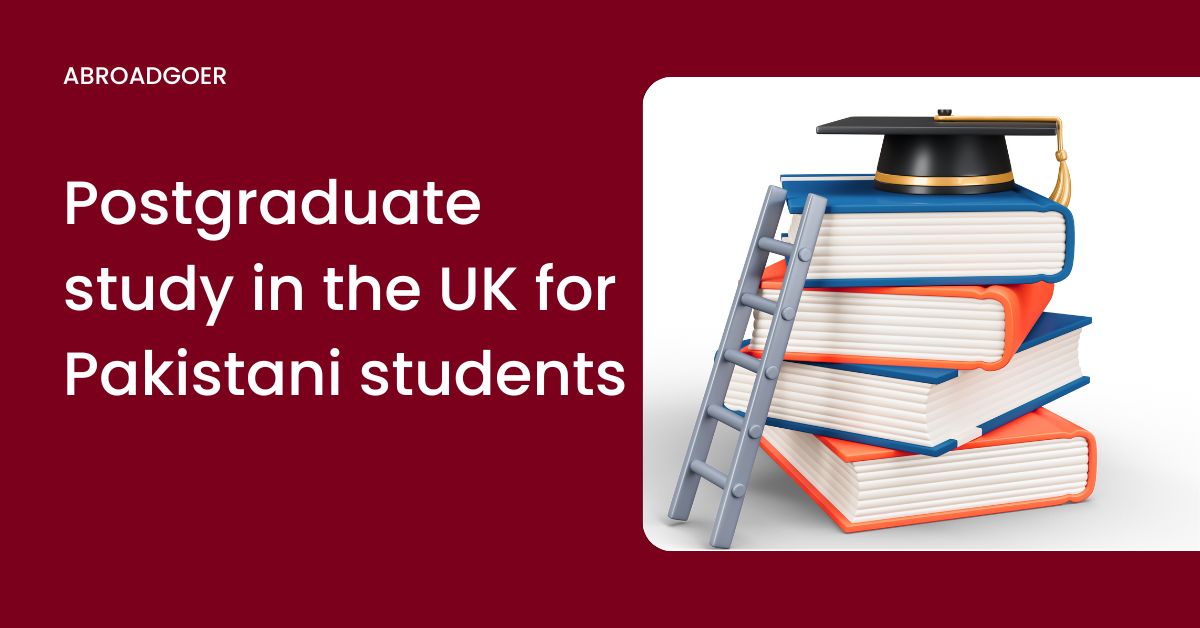How Much Study Gap Acceptable in UK
Are you dreaming of studying in the United Kingdom? Perhaps you have taken a break from your studies, and now you are wondering, how much study gap is acceptable in UK? It is a common worry for many students, but here is the good news: the UK is surprisingly flexible when it comes to accepting study gaps. You might be stressed about how a break affects your admission chances, but rest assured, the UK’s inclusive approach often welcomes applicants with diverse academic histories.
So if you have been asking yourself is a study gap is acceptable in the UK, the answer is often yes. The key lies in understanding what a study gap is, why it occurs, and how to effectively explain it in your application. This article aims to provide comprehensive insights into everything you need to know about study gaps in the UK for international students.
What Exactly is a Study Gap?
Simply put, a study gap is the period between your last academic qualification and how much study gap acceptable in uk your next planned educational pursuit. For instance, if you finished your undergraduate degree in 2020 and plan to start your master’s in 2025, you have a five-year study gap. This time away from formal education can be for various reasons, planned or unplanned, regular or irregular. How much study gap is acceptable in UK universities want to know what you were doing during this time.

Why Do Students Take a Study Gap
Students take study gaps for a multitude of valid reasons. The UK flexibility acknowledges that life happens and not everyone’s academic journey is a straight line. Here are some of the most common reasons why students take a break.
- Professional Opportunities: Many student use this time to gain valuable work experience or complete internships that enhance their skills and career prospects. This could be full-time employment part part-time jobs, or even entrepreneurial ventures. UK universities often appreciate the maturity and practical skills gained during such periods.
- Financial limitations: In such cases, students may feel the need to take a break and work for a brief period in order to save up enough money to complete higher studies. The financial reasons for the study gap in the UK are pretty much justified.
- Health—Dealing with unplanned health conditions—personal or family health issues can require a student to take a study break. Colleges know that well-being is paramount.
- Family Matters: Family responsibilities, like taking care of a sick parent or sibling, or other personal issues, can also pull you away from your studies.
- Skill Upgradation and Exam Preparation: You can also use your time to undertake short-term courses, learn a new language, gain some specialized knowledge, and prepare for the competitive exams, which could help in your higher studies.
- Development and Exploration: This may be travel, volunteer work, and hobbies that develop you and expand your experience.
- It’s worth remembering that these gaps are a natural feature of many educational experiences. The idea is to remove the stigma surrounding study gaps and showcase the learning and experience students gain during downtime.
How Much Gap is Accepted for Study in the UK?
The question, How much study gap is acceptable in the UK? has no one fixed answer. It would mostly be based on the program you are applying to, undergraduate or postgraduate, and the university’s policies. But there are some rules of thumb to follow.
How Much Gap is OK for Study in the UK After 12th?
For the students seeking a UK Bachelor’s degree after their 12th, most universities tolerate a time off of not more than 2 years of time off. If you finished high school in 2023, this means you could generally apply for a 2025 intake with a two-year gap. But there are exceptions. Some institutes, like University College Birmingham, consider a 5-year gap after the 12th. If you fall into this category, you will need to present compelling reasons for the gap and might need a higher IELTS score to prove your English proficiency.
Moving on from high school, it is wise not to take too long a break after high school, don’t think more than two to three years. If you wish to progress directly to a regular undergraduate degree. If you have a longer gap, you may still be able to apply for foundation courses in the UK. These courses aim to fill the knowledge gap and get you ready to go straight to University.
Can I get a Study Gap in the UK for a Master’s?
The case is even stronger for international (overseas) students at the postgraduate level who want to study in the UK. Usually, the study gap allowed for postgraduates is 5 years. That’s roughly the time frame at most universities, but it varies. But there are still others that are more forgiving, with an accepted study gap of 10 years in the UK. Some universities, such as Coventry University, Ulster University, and Bangor University, insist they are happy to consider applications with more distant breaks, as long as you have valid reasons and proof.
As one of fact, even though there is 15 15-year study gap accepted in the UK, & YOU can show them documents of all study dates, and also if you have some exceptionally strong reason, then postgraduate courses are not a big deal in this regard. Although this is rarer, it showcases the maximum malleability. However, if you have taken a study break for more than the accepted norms for direct entry to a Master’s, don’t despair. You could consider applying for a pre-master’s program in the UK, for instance. They are tailor-made to support you to get back in practice and train you to be fully academically prepped for postgraduate study to help you make that step up.
Which Universities Accept Gap Years in the UK?
The good news is that there are a lot of reputable universities in the UK that are willing to consider applications from students with gaps in their study history. They appreciate the varied life experiences and wisdom that such applicants contribute. Although specific policies may vary, there are some schools commonly cited for being willing to work with students:

- Swansea University
- Brunel University
- Kingston University London
- Bath Spa University
- Bangor University
- Cranfield University
- Cardiff Metropolitan University
- Leeds Beckett University
- Coventry University
- The University of Bradford
- University of East London (UEL)
- University of Oxford
- University of Edinburgh
- University of Manchester
- University of Glasgow
- University of Westminster
- University of Hertfordshire
- Imperial College London
- London School of Economics and Political Science (LSE)
- University College London (UCL)
- University of Leeds
You should be sure to look up each university’s program and admission requirements, since acceptance rates and gap year policies can differ.
How to Successfully Cover the Study Gap in the UK When Applying
The secret to applying successfully with a study bridge is the way you describe this period. Don’t look at it as a weakness; it is a time of learning and growth. Here’s a step-by-step guide:
- Know the University Norms: Every university can decide its value on how much study gap is acceptable in the UK. As always, be sure to check their policies before applying.
- Give a Good Reason: Be real and let them know why you took the break. Whether it was for professional development, money, illness, or family-related reasons, be honest about why.
- Upload Supporting Documents: This is very important. If there is a gap due to work, submit job experience letters, salary slips, or business papers. Along with courses taken, add certificates. If health were an issue, you would need a medical certificate and a doctor’s report. These documents contribute towards justifying your study gap for a UK student visa and university admission.
- Show Off Relevant Skills and Development: Show off any of the skills that you have developed over the last year, no matter how tangentially related to academia. Did you develop your communication, problem-solving solving or organisational skills? How did the experience impact you as a person or help you in your future career?
- Write a Fabulous SOP: Your SOP for a UK Student Visa is your opportunity to let the consulate know who you are. Don’t try to hide your study gap, but rather pounce on it assertively. Highlight what it taught you, how you grew because of it, and the determination it gave you to stay the course you’ve chosen. Describe how the deficiency fits with your academic and career objectives.
- Be specific about dates: Give a sense of your timeline, such as when you studied and then when there is a break in your studying. This will help the admissions committee understand where you’re coming from.
- Consult Advisors: Not sure of the right way to convey your study gap, visit the Study Abroad Consultants for guidance. They might have insights from the inside and can look over your application materials and make sure they sparkle.
Does a Gap Year Affect a Visa in the UK?
This is a common concern. The good news is that by and large, no, a gap year typically won’t affect your UK student visa application so as long as you’re genuine and candid about the gap. The new UK student visa tier 4 rules or points-based system recognises only real studentship. As long as you have proper justification for your gap year and supporting documents, immigration officials are likely to consider you a genuine student anyway. If you were sitting idle or not doing anything there tell the truth, but it’s always better to have work experience certificates any proof to show the gap was utilized productively.
Navigating the Landscape
Apart from the education gap, a common query from students is related to backlogs and course duration in the context of post-study work visas.
- Backlogs: Only a few colleges in the UK have been accepting candidates with backlogs during their graduation. If you had a backlog, and took an additional year to complete your bachelor’s, a few UK universities such as Cardiff Metropolitan University and the University of Hert ford shire,e may still consider your application. But, quotas for backlogs may change with each intake, so it’s always good to verify current policies.
- Course Length Required for the Post-Study Work Visa: If you want to stay and work in the UK after your studies with the Graduate Route Visa, your chosen programme should have a minimum duration of 12 months. This is met by the majority of Master’s degrees (MBA, MSc, etc.) Be careful of shorter programs (e.g., some 6-month top-up programs), as these will not make you eligible for the post-study work visa.







